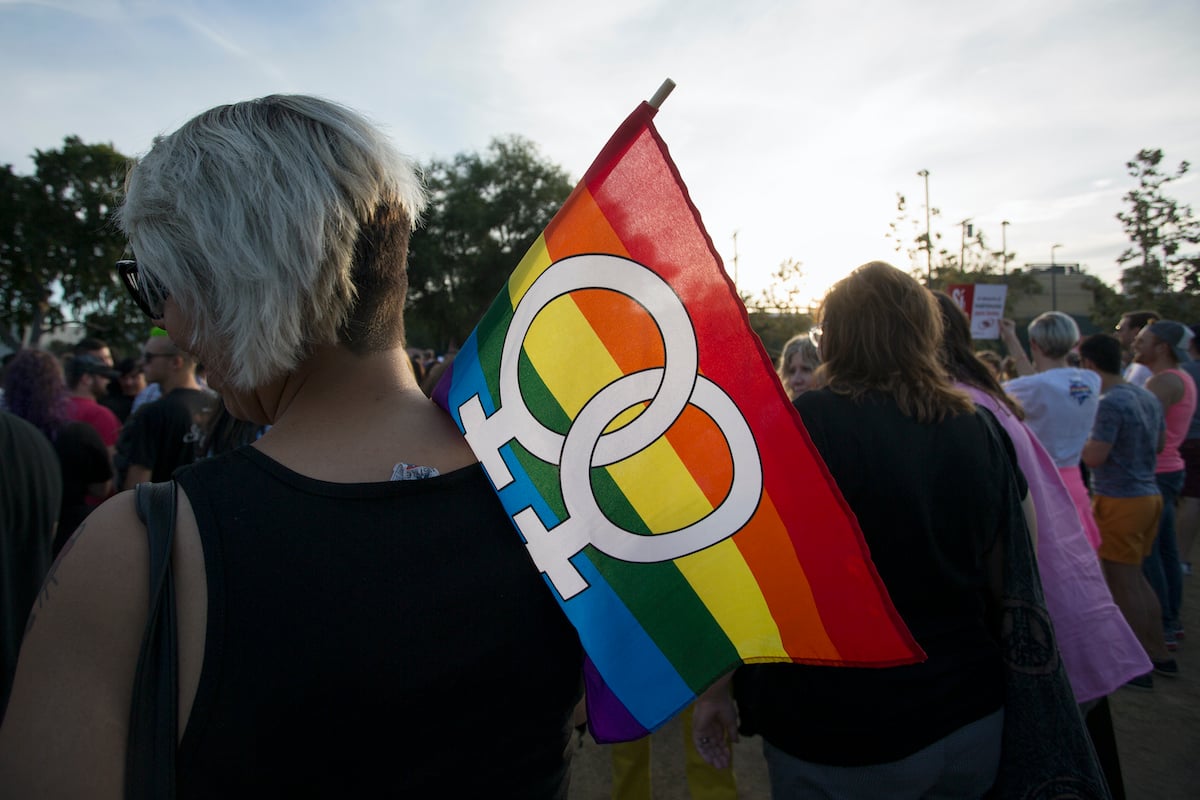On November 28, the U.S. Senate passed the Respect for Marriage Act in a vote of 61-36. Though it already passed the House, it has to go back quickly, before the Republicans gain control in January, so that President Biden can sign it into law. Because our collective expectations for politicians are so low, many are cheering the passage of this act as a win. However, this is act is not going to fully legalize same-sex and interracial marriage, as it’s being touted.
Before we get into this watered-down law, let’s quickly recap how it came about. Everything is linked to the Supreme Court (SCOTUS) overturning Roe v. Wade via the Dobbs decision in July 2022. Months before it was official, a SCOTUS leak argued against many privacy protections and signaled the end of legal reproductive healthcare for millions. These privacy protections are the basis of many Supreme Court precedents in the last century. This includes major rulings on sodomy laws (anal sex, but broadly used to outlaw same-sex relationships), miscegenation (sex between people of different races), and even the use of contraception.
When Roe actually fell a few months later, Justice Clarence Thomas wrote in an opinion that the Supreme Court decisions of Griswold (contraception), Lawrence (non-procreative sex), and Obergefell (same-sex marriage) should be reconsidered. Also, our legal system is built on precedence. Imagine it like a game of Jenga where the lowest blocks are old court decisions, and the highest are newer ones. When SCOTUS overturned Roe, they pulled from the bottom of the stack. Those bottom blocks support everything above. This now throws almost every decision that cited Roe into question, and Roe was protected by the earlier precedent of right-to-privacy laws and five constitutional amendments.
What does the Respect for Marriage Act actually do?

This bill does a few things, good and not so good. The first thing it does is repeals the so-called Defense of Marriage Act (DOMA) of 1996, which defined marriage as between one man and one woman. This legislation was largely chipped away at in 2013, but like we saw with Roe, it’s still important to put it down in writing that same-sex marriage is legal nationwide, as that federal law would be the only way to protect it if the ruling in Obergefell were overturned.
But the Respect for Marriage Act does not enact those protections. It’ll ensure that if (really, when) Obergefell and/or Loving v. Virginia (the ruling that protects interracial marriage) fall, every state is required to recognize your marriage if it was legally performed, but it would not require states to allow new same-sex or interracial marriages to be performed in the first place—though it’s unclear if marriages legally performed in states that later outlaw those marriages would still be recognized.
The last pages of the roughly four-page document are dedicated to “religious exemptions.” This is probably why certain groups and sects of religions are not totally against the Respect for Marriage Act. If you’re wondering why the Mormon church (which doesn’t allow same-sex couples to hold hands at Brigham Young University) and Utah’s senator (Mitt Romney) would support this publicly, well, some former Mormons have ideas as to why.
@_awholeneww0rld_ The church is powerful and smart. Don’t underestimate the influence that have in government. Don’t mistake their PR support for real support of ?️?. It’s all smoke and mirrors. #lgbt #lgbtrights #gaymarriage #religiousfreedom #exmormon #churchpolitics #respectformarriageact #toxicniceness #lgbtq #equality #civilrights ♬ original sound – Rey
Where do we go from here?

This is not happening in a vacuum, but at the same time, even the simple act of talking about racism, homophobia, or transphobia is being vilified by the most watched cable news broadcasts and most viral videos online.
I’m in too much of a privileged position, in many respects, to say Congress is better off doing nothing and going back to the drawing board, especially when we saw inaction following the gutting of abortion protections. However, the Respect for Marriage Act is pathetic, and they need to do more. This doesn’t even resemble a band-aid solution. A band-aid solution would be making marriage legal regardless of gender, sex, race, and ethnicity. Elected officials need to buck up and take action.
(featured image: David McNew/Getty Images)
—The Mary Sue has a strict comment policy that forbids, but is not limited to, personal insults toward anyone, hate speech, and trolling.—










Published: Dec 1, 2022 07:30 am